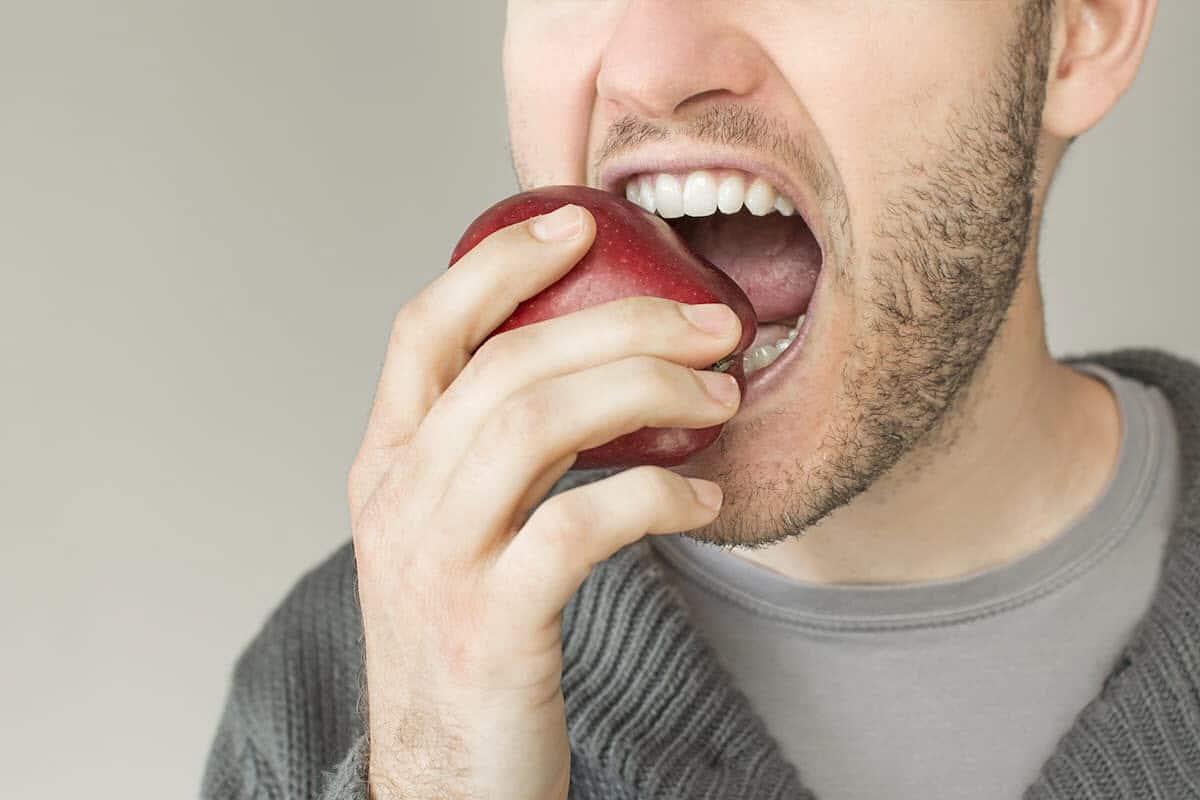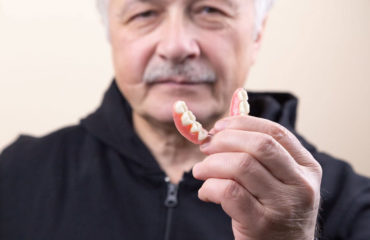Living with dentures doesn’t mean you have to give up on eating your favourite foods. It can be daunting for those new to wearing dentures to adjust their diet and get used to eating with them in place, but there are some simple things you can do to make the transition a lot smoother.
In this article, we’ll outline some tips for eating with dentures to help you continue enjoying your favourite foods.
What to Expect
First, it’s important to understand the challenges you may face when eating with dentures.
Immediately after getting dentures, many have difficulty eating due to a lack of control over the prostheses. This is normal and goes away as you become more accustomed to mouth with them in place.
Another issue is learning how much pressure you should put on foods. Some people accidentally bite down too hard, which can be uncomfortable or even lead to breaking the denture itself. Eating soft and mildly textured foods is a good way of getting used to using your new teeth without disrupting your mealtime experience too much.
Tips for Enjoying Your Meals with Dentures
The following tips will help you enjoy meals with dentures while avoiding issues such as slippage or discomfort.
- Small pieces: Cutting food into small chunks before taking a bite will make it easier for your snaps and gums to adjust and grip the food better than having one large bite that might slip off the plate during or after biting through it.
- Use both sides of your mouth: Divide larger items between both sides of the jaw by pushing them against opposing molars. This helps the denture stay in place by giving it a conscious exercise to work against and creating more stability during chewing instead of wobbling inside the mouth.
- Avoid particularly chewy foods: Gum, firm fruits/vegetables, and other excessively chewy items may prove difficult for new dentures to handle. They should be avoided until you’re used to eating with the prostheses fully inserted.
- Rest after meals: Allow your muscles some time for rest after larger meals. The areas where the dentures are placed get quickly exhausted from having something constantly pressing on them. Allowing time will allow them to relax while being kept clean.
- Make gradual changes over time: Rushing into hard or chewy foods too quickly can cause discomfort or slippage. Take things slowly at first and increase in difficulty only when your dentures feel stable enough.
- Consult your dentist: If you ever experience any unusual symptoms, such as pain or severe slippage while eating with your dentures, contact a dental provider immediately. Regular check-ups will address any issues and ensure your dentures remain comfortable all year round.
What to Do Next
Eating with dentures can initially seem intimidating, but it’s just a matter of getting used to them. By practicing these tips and consulting your dentist regularly for check-ups, you’ll soon be able to enjoy meals stress and slippage-free.
If you’re looking for more information on living with dentures or advice about the foods that may help aid in healing for those with denture sore spots – explore our blog! At Hillhurst Denture Clinic, we strive to be a valuable source of knowledge for your denture lifestyle.




